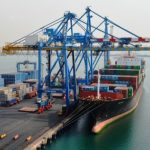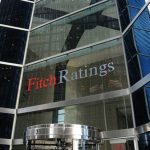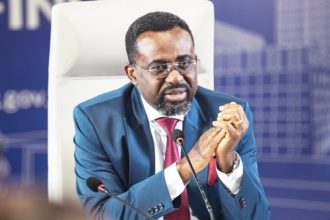The country’s renewable energy prospects for 2030 have been boosted by the inauguration of a US$17million solar rooftop project, said to be Africa’s largest solar rooftop project, at the Free Zones Enclave in Tema.
The 16.8-megawatt (MW) peak installation by LMI Holdings Limited is set to enhance renewable energy capacity, contributing to the anticipated combined capacity of over 3,000 megawatts from upcoming solar projects.
Ghana is seeking to increase renewable energy in the national energy generation mix from 42.5 MW in 2015 to 1,363.63 MW by 2030, with grid-connected systems totalling 1,094.63 MW.
The Minister of State-Ministry of Energy, Herbert Krapa, emphasising the project’s importance said: “With this new addition of 16.82 MW alongside our existing and forthcoming capacities totalling over 3,000 MW, we are taking substantial steps toward our goal of net zero emissions by 2060”.
LMI Holdings has plans to add nearly 1,200 MW of renewable energy through additional projects, according to Krapa. Combined with government’s planned 2,000 MW of solar power set to be distributed mainly across the country’s northern parts, he noted that these initiatives are expected to be a gamechanger for Ghana’s energy landscape.
“We are working with the Volta River Authority (VRA), Bui Power Authority and Grid Company of Ghana to make sure that these projects see the light of day. We have identified project sites and feasibility studies have been conducted on some of them.”
He added that a grid impact assessment is being conducted with a vision that, together with the private sector, “we’re able to make these lands available to private sector partners, ensuring that solar and wind projects take off in earnest”.
The solar rooftop project, which was funded by International Finance Corporation (IFC), is said to be part of a US$30million clean power and water investment with LMI Holdings. The initiative supports job creation and promotes greener, more sustainable and competitive industrial development.
The solar plant in Tema Free Zone, combined with a water plant, is expected to reduce the country’s emissions by approximately 10,000 tonnes of CO2 equivalent annually. Additionally, the water plant will be Ghana’s first private facility producing reliable, high-quality water for industrial use.
It is in line with this that the minister, who was speaking at a ceremony to outdoor the project, noted this development “underscores the private sector’s power to contribute in government’s agenda of bringing growth and prosperity for our people. The private sector has capacity to anchor government’s vision of bringing growth and development to our people”.
“Government has a plan to mainstream renewable energy as part of our energy generation mix. While government has access to land, can make regulation easier and also provide some funding, the biggest funding can must by all means come from the private sector. This project signals a lead and informs the private sector there’s a role you have to play in supporting government achieve the vision of 10 percent renewable energy sources in our mix by 2030.”
Furthermore, besides its socio-economic impact, this project positions the country to meet its Nationally Determined Contributions (NDCs) under the Paris Agreement.
Also speaking at the ceremony to outdoor the project, IFC Senior Country Officer-Ghana Cluster, Cemile Hacibeyoglu said they have provided over US$400million in investments, delivering its largest programme over the past decade.
The IFC, she said, is increasingly cognisant of climate change’s importance as a defining development issue, hence aligning its pipeline with the Paris Climate Agreement and helping clients transition to low-carbon development models across different industries.
Hacibeyoglu noted that sustainable and inclusive infrastructure is crucial for addressing development challenges in emerging markets and combatting climate change.
She said: “By offering long-term financing and industry-leading expertise, we partner with the private sector to develop projects that provide essential services”.
Managing Director-LMI Holdings, Adlai Opoku-Boamah, also asserted that a one-million square-foot rooftop solar project is a major step toward energy independence and environmental stewardship.
He disclosed that they have secured a 2,300-acre land bank in Dawa to develop a 150 MW solar park project, which forms part of the additionally approved US$110million facility from IFC.
“Businesses that choose to locate within the Dawa Industrial Zone will be assured of continuous, uninterrupted power supply as well as a 10 percent rebate on electricity tariffs for the next five years,” Opoku-Boamah said.
















